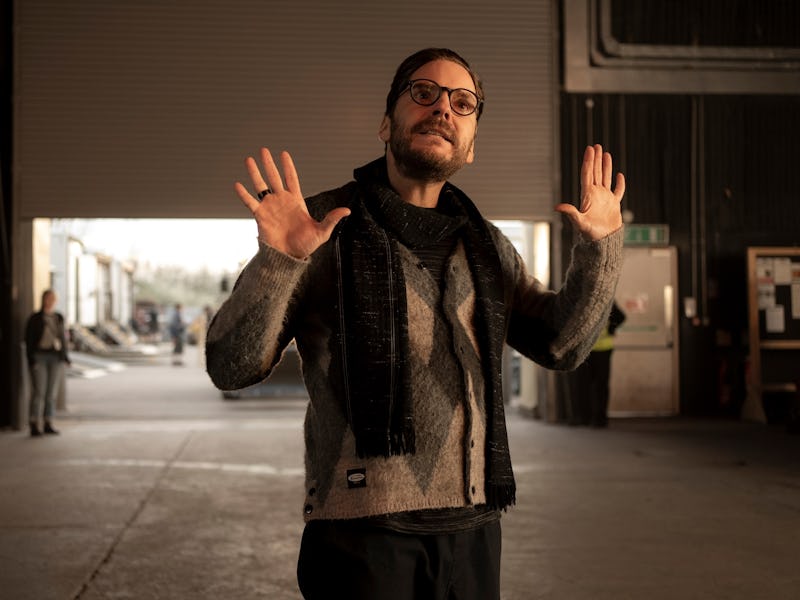HBO’s Newest Show Just Exposed a Huge Blockbuster Sin
Clark Kent, brought to you by Warby Parker.

Making a superhero movie is a constant balance between making a good movie and making a profitable movie. In an ideal world, the most popular movies would be the best movies, but that would mean Avengers: Endgame winning the Oscar over Parasite. At the end of the day, blockbusters exist to make money. Typically, that means getting butts into seats and selling merchandise, but there’s another way for Hollywood to make a profit even if nobody sees a film or buys the action figures afterward.
HBO’s satirical comedy The Franchise has been landing brutal blows on the superhero-movie-complex ever since it premiered, but Episode 5 takes the series to new heights by exposing one of Hollywood’s most egregious sins: product placement. In the process, The Franchise also takes a break from pummeling Marvel and shifts its attention to a few other studios.
It’s not exactly the most seamless addition to a superhero movie set in space.
In The Franchise Episode 5, director Eric (Daniel Brühl) is trying to film the emotional heart of his superhero epic, Tecto: Eye of the Storm. The scene is a teary speech made by the hero in a hospital room, and Eric hopes it can redeem his reputation after a career spent making German commercials. Little does he know, however, that his corporate overlords at Maximum Studios movies are about to turn his movie into a commercial of sorts. It’s soon revealed that the studio has agreed to product placement deals for a Chinese tractor company in exchange for a chance to screen movies in the country.
“Look, it’s a two-second shot of a tractor,” assistant director Daniel (Himesh Patel) says, trying to convince Eric to accept yet another humiliation.
“Dickens was product, and Shakespeare moved units,” Daniel adds. “The biz is the biz is the biz.”
William Shakespeare might not have shilled for the latest in 16th-century farming technology, but product placement is still a major part of most blockbuster movies. From Peter Parker researching his villain using Bing in The Amazing Spider-Man to pretty much all of Barbie (a movie created by Mattel to sell more toys), product placement is unavoidable.
Just let the man drink his synergy-friendly lactose-free milk!
One of the most egregious product placement examples in cinematic history is directly referenced by The Franchise. The story ends with the Tecto team being roped into including yet another Chinese product, a milk brand that may or may not be selling tainted products and calls in a favor to gain some good press. This is clearly a reference to Transformers: Dark of the Moon, a movie notoriously crammed with product placement. In one scene, a character played by Ken Jeong is drinking a carton of milk before another co-worker tries to vent about his troubles. “May I finish my Shu Hua milk, Donnie?” he asks. “I don’t care about your exotic milk,” Donnie replies. “I care about respect!”
It’s a moment that comes out of nowhere, but it worked enough that when the next Transformers movie, Age of Extinction, brings the action to Hong Kong, villain Joshua Joyce (Stanley Tucci) finishes off a big chase sequence by slurping down, you guessed it, a carton of Shu Hua.
Warner Bros. made $170 million off brand deals for Man of Steel, including this Warby Parker product placement.
Product placement is also rampant in superhero movies, although Marvel is pretty good about avoiding it with the exception of the studio’s love for Acura cars. In 2013, The Independent reported that Zack Snyder’s Superman film Man of Steel had already recouped $170 million of its $225 million budget through brand deals alone, including collaborations with glasses brand Warby Parker (perfect for mild-mannered journalists) and Nokia phones.
At this point, product placement is a fact of life, but it’s still worth criticizing studios when they take that too far. After all, there’s making a bit of extra cash off of Clark Kent’s choice of glasses, and then there’s putting a tractor in space to make China happy (the milk probably falls somewhere in between).